The Porte de Paris a magnificent triumphal arch located in the heart of Lille, is a testament to the city’s rich history and artistic heritage. Built in 1692 to commemorate the capture of Lille by King Louis XIV, this iconic monument is a wonderful reminder of France’s military and architectural achievements. With its Baroque style and intricate details, Porte de Paris is not only a historical landmark but also a symbol of Lille’s cultural pride. Follow archeology.dulichvn.net to learn more about ancient culture
Historical Significance of the Porte de Paris
1. Celebrating Victory
The Porte de Paris was constructed during the reign of Louis XIV, the Sun King, to celebrate his successful conquest of Lille in 1667 during the War of Devolution. This monumental gateway marked the city’s newfound importance as part of the French kingdom, serving as both a commemoration of victory and a display of royal power.
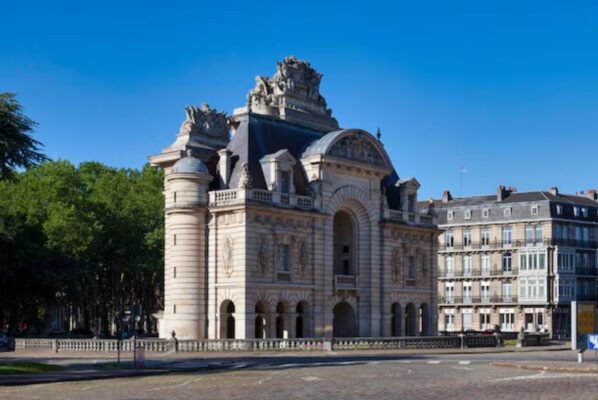
2. Strategic Location
Located at the old entrance to Lille, the Porte de Paris was strategically placed to welcome visitors and dignitaries. It served as a gateway to the fortified city, symbolizing strength and security. The arch became a focal point of the city’s urban planning, aligning with the grandeur of Louis XIV’s vision for his territories.
3. A Legacy of Louis XIV
The monument stands as a tribute to Louis XIV’s ambition and the French Baroque era’s flourishing artistry. As one of the most celebrated monuments of Lille, the Porte de Paris reflects the monarch’s influence and the unification of the city with the French kingdom.
See more: Discovering Huayan Temple A Blend of Cultures and Colors
Architectural Brilliance of the Porte de Paris
1. Baroque Style and Design
The Porte de Paris is a masterpiece of Baroque architecture, characterized by its dramatic and ornate design. The arch features bold lines, grand proportions, and intricate carvings that exude elegance and power. Its symmetrical composition and decorative sculptures make it a visual marvel.

2. Intricate Sculptural Details
The arch is adorned with sculptures and bas-reliefs depicting allegorical figures, military victories, and royal emblems. These intricate details not only celebrate France’s might but also showcase the artistic expertise of the era. Notable elements include the Sun King’s emblem and motifs representing triumph and prosperity.
3. Durability and Materials
Constructed with durable limestone, the Porte de Paris has withstood centuries of weathering and urban development. Its sturdy design reflects the engineering capabilities of the time, ensuring the monument’s longevity as a historical and architectural gem.
See more:Discover the Majestic Colomares Castle: A Hidden Gem in Spain
The Porte de Paris: Then and Now
1. Restoration Efforts
Over the centuries, the Porte de Paris has undergone several restoration projects to preserve its grandeur. Modern conservation techniques have helped maintain its intricate details, ensuring that future generations can continue to admire its beauty.
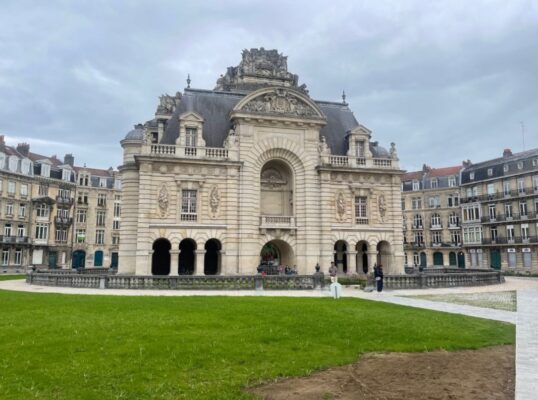
2. A Cultural Landmark
Today, the Porte de Paris is one of Lille’s most iconic landmarks, drawing tourists, history enthusiasts, and art lovers from around the world. Its central location makes it a popular site for photography and cultural exploration, highlighting Lille’s historical significance.
3. Integration with Modern Lille
While rooted in history, the Porte de Paris seamlessly blends with the modern urban landscape of Lille. Surrounding parks and open spaces provide a serene backdrop for the monument, making it a cherished part of the city’s identity.
Why Visit the Porte de Paris?
1. A Journey Through History
Visiting the Porte de Paris offers a glimpse into Lille’s transformation over centuries. As a marker of French history, the arch tells the story of military triumphs, artistic achievements, and the city’s evolution
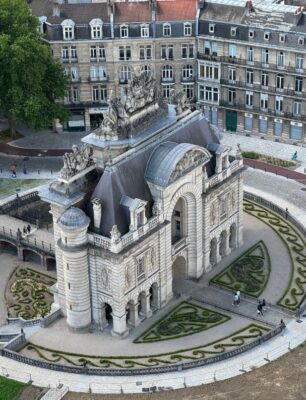
2. Architectural Splendor
The monument’s Baroque architecture is a must-see for lovers of art and design. From its grand arches to its intricate sculptures, the Porte de Paris stands as a testament to the craftsmanship of the 17th century.
3. A Symbol of Lille’s Identity
More than just a monument, the Porte de Paris is a symbol of Lille’s resilience and pride. Its enduring presence reminds visitors of the city’s historical importance and its role in shaping France’s cultural landscape.
Conclusion
The Porte de Paris in Lille is more than a triumphal arch; it is a masterpiece of Baroque architecture and a symbol of France’s storied past. Built to commemorate a pivotal moment in history, this iconic monument continues to inspire awe with its intricate details and grand design. Whether you are a history enthusiast, an architecture aficionado, or a traveler seeking cultural landmarks, the Porte de Paris offers an unforgettable glimpse into Lille’s legacy. Make sure to include this historic gem on your next visit to Lille, where the past and present beautifully converge.
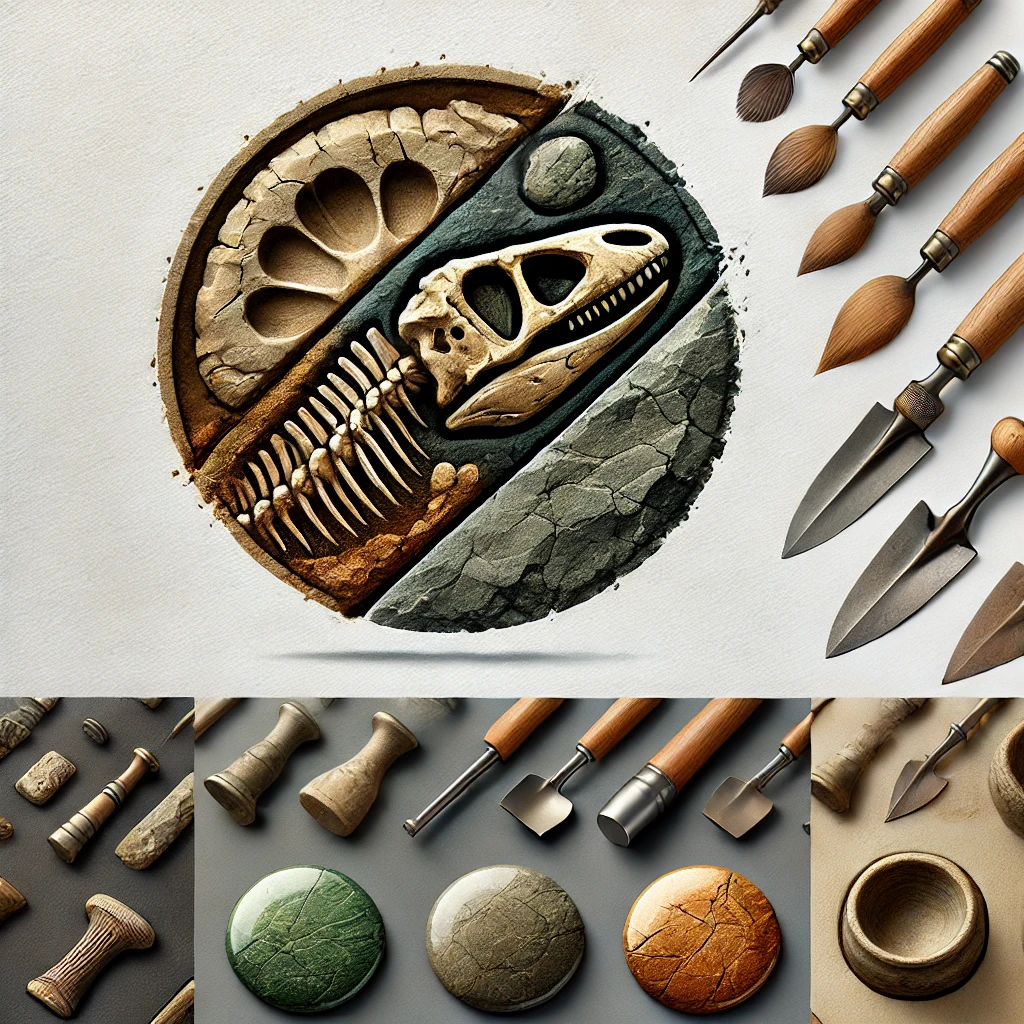
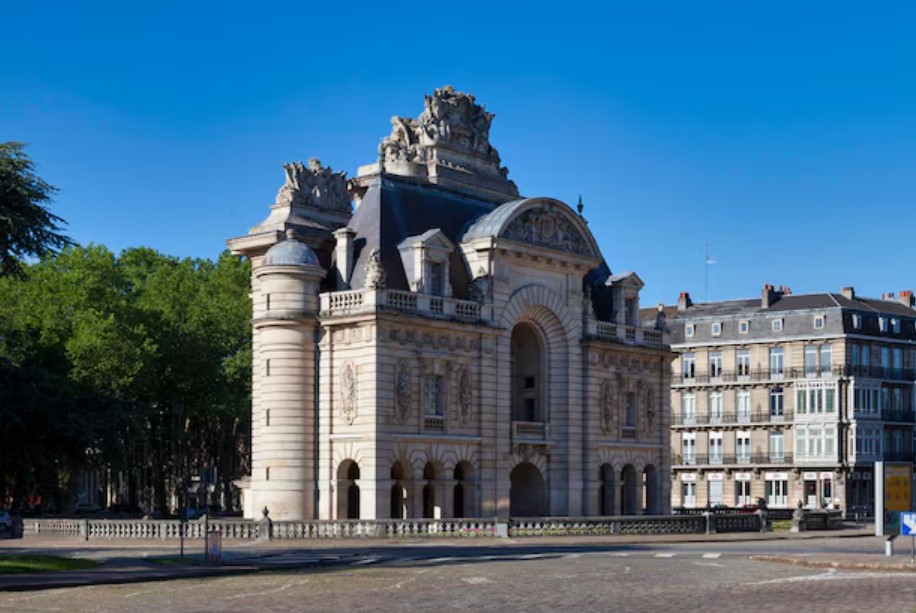
CÁC TIN KHÁC
Mary Walton: The Forgotten Inventor Who Helped Clean Up America’s Cities
Tomb of Queen Nefertari in the Valley of the Queens, Egypt
Discover the Hypostyle Hall of the Temple of Hathor at Dendera
Venus de Losange: Unveiling the Mystery of a 20,000-Year-Old Paleolithic Icon